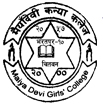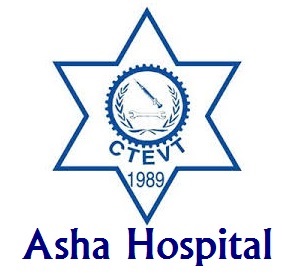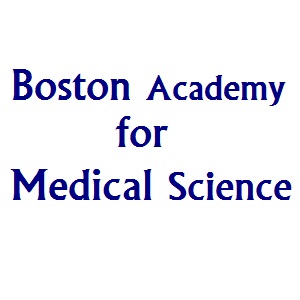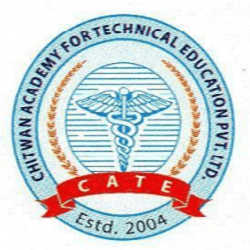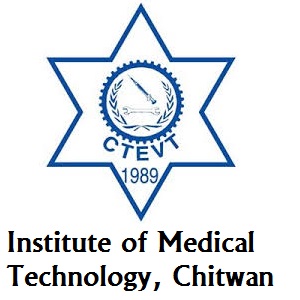Overview
PCL Nursing Program at Bharatpur Hospital Nursing College (BHNC)
Course Overview
The Proficiency Certificate Level (PCL) Nursing program at Bharatpur Hospital Nursing College (BHNC), affiliated with the Council for Technical Education and Vocational Training (CTEVT), is a comprehensive three-year program. The curriculum comprises theoretical knowledge and practical skills to produce competent mid-level nursing professionals. The program equips students to provide preventive, promotive, curative, and rehabilitative care in diverse healthcare settings, emphasizing holistic patient care.
Program Duration
The PCL Nursing program spans three academic years, each consisting of up to 40 weeks. The program is structured to include:
-
Year 1: Foundational nursing care and community health.
-
Year 2: Medical, surgical, senior, and mental health nursing.
-
Year 3: Midwifery, gynecology, child health, and leadership and management.
Each academic week has up to 40 instructional hours, excluding evaluation periods.
Eligibility Criteria
Prospective students must meet the following requirements:
-
School Leaving Certificate (SLC) with a minimum of 45% or SEE with a GPA of 2.0 and a minimum "C" grade in Mathematics, English, and Science.
-
Successful completion of the CTEVT entrance examination.
-
Admission is based on merit, determined by entrance exam performance.
Admission Process
-
Entrance Examination: A comprehensive three-hour test comprising 50 marks each for English, Mathematics, and Science (MCQ format).
-
Merit List: Candidates are selected based on scores in descending order.
-
Enrollment: Eligible students complete the admission process by submitting the required documentation and fees.
Course Outline
The PCL Nursing curriculum is divided into three years:
First Year
Focus: Foundational nursing practices and community health.
-
Fundamentals of Nursing (Theory and Practical)
-
Community Health Nursing I (Theory and Practical)
-
Anatomy and Physiology
-
Basic Science Applied to Nursing (Pharmacology, Biochemistry, Microbiology)
-
English and Nepali
Second Year
Focus: Medical, surgical, geriatric, and mental health nursing.
-
Medical-Surgical Nursing I & II (Theory and Practical)
-
Geriatric Nursing (Theory and Practical)
-
Mental Health and Behavioral Nursing (Theory and Practical)
-
Community Health Nursing II (Theory and Practical)
-
Social Science
Third Year
Focus: Midwifery, gynecology, child health, and leadership.
-
Midwifery Nursing I, II, & III (Theory and Practical)
-
Gynecology Nursing (Theory and Practical)
-
Child Health Nursing (Theory and Practical)
-
Leadership and Management (Theory and Practical)
Subjects Offered
Year 1
-
Fundamental of Nursing (T/P)
-
Community Health Nursing I (T/P)
-
Anatomy and Physiology
-
Basic Science Applied to Nursing (Pharmacology, Biochemistry, Microbiology)
-
English, Nepali
Year 2
-
Medical-Surgical Nursing I & II (T/P)
-
Geriatric Nursing (T/P)
-
Mental Health and Behavioral Nursing (T/P)
-
Community Health Nursing II (T/P)
-
Social Science
Year 3
-
Midwifery Nursing I, II, & III (T/P)
-
Gynecology Nursing (T/P)
-
Child Health Nursing (T/P)
-
Leadership and Management (T/P)
Program Objectives
-
Provide care to individuals, families, and communities using a sound knowledge base.
-
Promote health and implement therapeutic measures for health maintenance and restoration.
-
Develop leadership skills to plan and improve healthcare delivery.
-
Collaborate with multi-sectoral groups for a healthful environment.
-
Foster a commitment to lifelong learning for professional growth.
Teaching Methodology
-
Interactive Lectures: Facilitates conceptual understanding.
-
Practical Demonstrations: Conducted in state-of-the-art labs.
-
Case Studies: Enhances critical thinking.
-
Community Engagement: Field visits and community service.
-
Workshops and Training: Focus on soft skills like public speaking and leadership.
Learning Outcomes
Upon completion of the program, students will:
-
Demonstrate competency in providing holistic nursing care.
-
Apply preventive and therapeutic nursing practices effectively.
-
Exhibit leadership skills in healthcare settings.
-
Communicate effectively with individuals and groups.
-
Integrate evidence-based practices into nursing care.
Future Scope
Graduates of the PCL Nursing program can:
-
Pursue advanced studies like a Bachelor of Nursing (BN).
-
Secure employment as Staff Nurses in public and private healthcare institutions.
-
Explore roles in specialized areas like midwifery, community health, and senior care.
-
Contribute to global healthcare as registered nurses.
-
Engage in research and policy development.
Career Prospects
-
Industries: Hospitals, community health centers, NGOs, and rehabilitation centers.
-
Roles: Staff Nurse, Community Health Nurse, Midwifery Nurse, Geriatric Nurse, and more.
-
Pathways: Progress to leadership roles or specialize in pediatrics or oncology.
Scholarship Opportunities
BHNC offers scholarships for academically excellent and economically disadvantaged students. Criteria include:
-
Academic performance in previous examinations.
-
Results from the entrance exam.
-
Special provisions for female and marginalized community students.
Fee Structure
-
Total: NPR 624,230
-
Year 1: NPR 249,690
-
Year 2: NPR 187,270
-
Year 3: NPR 187,270
-
Extracurricular and Co-Curricular Activities
-
Sports and fitness programs.
-
Community service and health camps.
-
Student clubs for leadership development.
-
Cultural events and competitions.
Real-World Application
The program includes extensive clinical placements and community health projects, enabling students to apply theoretical knowledge in real-world scenarios.
Sustainability and Social Impact
The program incorporates sustainable healthcare practices, environmental health, and social responsibility training, preparing graduates to address emerging global health challenges.
Skill Development
Students gain skills in:
-
Patient care and clinical decision-making.
-
Leadership and team management.
-
Effective communication and interpersonal relations.
-
Research and evidence-based practice.
Global Perspective
Graduates are trained to meet international healthcare standards, enabling them to work in global healthcare systems.
Facilities and Support
-
Modern laboratories and computer facilities.
-
High-speed internet and individual email accounts.
-
Hostel and transportation services.
-
Career counseling and mentorship programs.
Why Choose the PCL Nursing Program?
-
Comprehensive curriculum aligned with healthcare needs.
-
Opportunities for clinical exposure and hands-on learning.
-
Strong emphasis on skill development and leadership.
-
A supportive environment empowering academic and personal growth.
Is the PCL Nursing Program Right for You?
If you are compassionate, detail-oriented, and passionate about healthcare, this program offers the foundation to build a fulfilling career in nursing.
What is the Future of the PCL Nursing Program?
Over the next 15-20 years, the demand for skilled nurses will continue to grow due to:
-
Increasing global healthcare needs.
-
Aging populations require specialized care.
-
Technological advancements in healthcare.
-
Expanding roles for nurses in leadership and research.
How to Improve Your Studies in Nursing?
To excel in nursing studies:
-
Develop a consistent study schedule.
-
Actively participate in practical sessions and field visits.
-
Collaborate with peers for group discussions and projects.
-
Seek feedback from instructors to improve skills.
-
Use digital tools and resources for advanced learning.
This information ensures a thorough understanding of the PCL Nursing program, addresses student concerns, and prepares students for a successful healthcare career.



